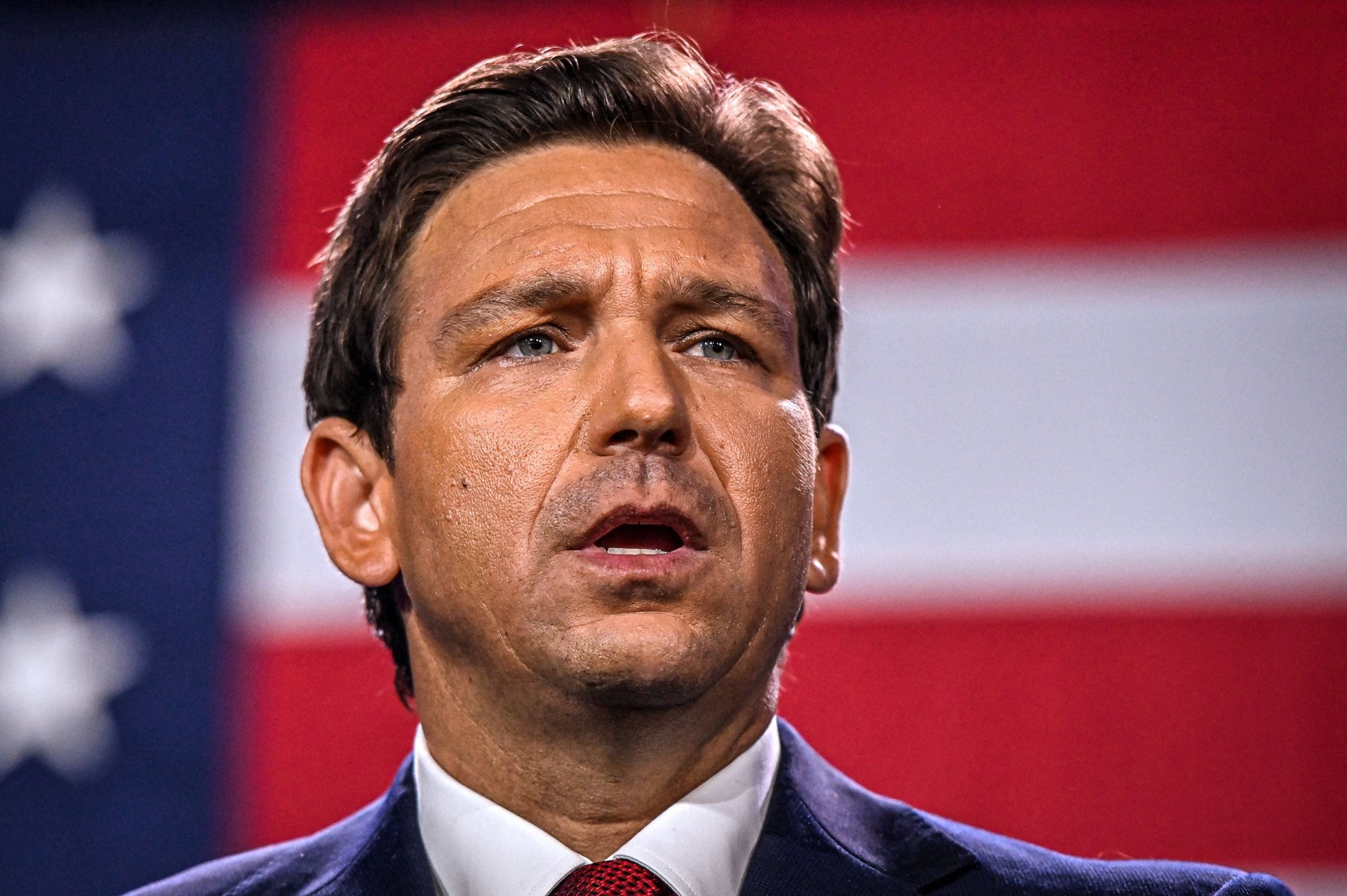🌎 BlackRock's ESGs trigger Florida
Plus: For sale: 100 islands, never developed

Good morning, Quartz readers!
Here’s what you need to know
Florida is pulling $2 billion in state assets from BlackRock. The Republican-governed state is the latest to snub the asset manager over its support of environmental, social, and governance (ESG) investing principles.
The US Senate overwhelmingly voted to stop a rail strike. A bill forcing unions to accept an agreement negotiated in September passed without an amendment that would have added sick pay days and assuaged some of the workers’ concerns.
The student loan forgiveness plan battle reaches the US Supreme Court. A decision on the White House’s program should be due by the end of June.
Ye isn’t buying Parler anymore. The social media company announced the termination of the acquisition plans after the rapper caused new controversy with statements in support of Nazism.
Tesla delivered its first electric trucks to PepsiCo. The production of the vehicles received state and federal subsidies to reduce freight transport’s carbon emissions and pollution.
Coinbase complained Apple’s rules make NFT trading impossible. The crypto exchange had to disable the function on its iOS wallet because Apple doesn’t support crypto for the payment of its 30% gas fee on in-app purchases.
Canada was accused of hypocrisy over its deforestation commitment. The country sought to water down traceability requirements in an EU plan to end trade of unsustainably sourced wood products, according to the Guardian.
What to watch for
The US Bureau of Labor Statistics releases jobs numbers today. Economists polled by Dow Jones expect the US to add 200,000 jobs. If this turns out to be accurate, it will be a much slower pace of growth from the 261,000 jobs the US added in October.
There’s a good chance the economists are right. Another BLS report released earlier in the week showed US job openings declined by 353,000 in October, while the percentage of workers quitting edged down from 2.7% to 2.6%. A jobs indicator released by payroll firm ADP showed a measly 127,000 jobs added in November, hampered by a shortfall of 100,000 manufacturing jobs.
But maybe we should be paying more attention to the jobs report’s earnings data: The Federal Reserve is more likely to hike rates to a level that raises unemployment if earnings remain high.
For sale: 100 islands, never developed
What would you do with 100 Indonesian islands that are home to irreplaceable biodiversity?
Whoever wins a Sotheby’s auction that’s selling the development rights to the islands, described by the broker as “one of the most intact coral atoll ecosystems left on Earth,” will get to answer that question. How they do will undoubtedly have big environmental consequences.
Is it ideal for a rich Western individual to buy and hold such biodiversity treasures? Certainly not. But the alternative, selling them to be developed for profit, holds no promise of solving the world’s environmental problems, or even the specific issues faced by Indonesia.
Immigrants didn’t just build the World Cup—they’re playing in it
In Qatar, immigrant labor has built the stadiums and infrastructure needed to host the ongoing $200 billion FIFA World Cup. And it has come with a devastating human toll: between 400 and 500 worker deaths have been reported in Qatar so far, and that’s likely an undercount.
But beyond the construction labor, immigrants have also taken to the field in cleats, playing in the World Cup itself. Nearly 17% of players this year are representing countries they weren’t born in, a number that signals an altogether different kind of globalized workforce.
✦ The next Weekend Brief will look at the immigrant compositions of teams, and how shifting demographics are changing up the World Cup. The Weekend Brief is a member exclusive email, so you’ll need to sign up for a Quartz membership today—but we’ve scored you a 50% off deal.
Quartz’s most popular
🚪 With Bret Taylor’s exit, Marc Benioff is once again the sole CEO of Salesforce
Surprising discoveries
PhD programs are having a “GRExit” moment. Schools have opted to ditch the standard Graduate Record Examination test after questioning its fairness and validity.
France’s baguette and Tunisia’s harissa were granted Unesco status. The two cultural heritage foods actually sound like a pretty good combo.
Humongous and tiny numbers got new prefixes. The International System of Units has added ronna, ronto, quetta, and quecto to the lexicon.
Key changes are no longer trendy in pop. The only scale-shifting hit we’ve heard in recent years is “Sicko Mode.”
Physicists sent messages through a mini wormhole. U up? It’s the spacetime continuum, but some just call me a hologram.
1️⃣ More Thing
Before you go—we’ve got a chance for you to win a $250 Amazon gift card. Tell us why you read Quartz and you’ll be entered to win.
Our best wishes for a productive day. Send any news, comments, fresh bread, and karaoke classics to [email protected]. Reader support makes Quartz available to all—become a member. Today’s Daily Brief was brought to you by Cassie Werber, Sofia Lotto Persio, Julia Malleck, Nate DiCamillo, and Morgan Haefner.